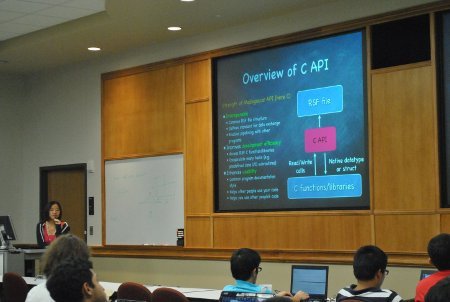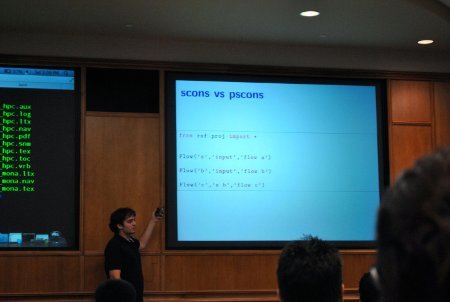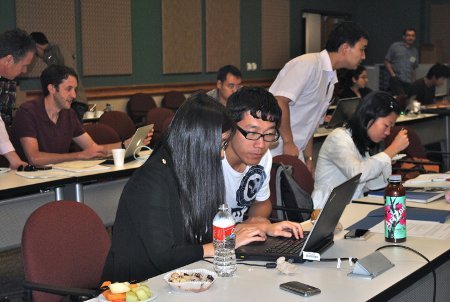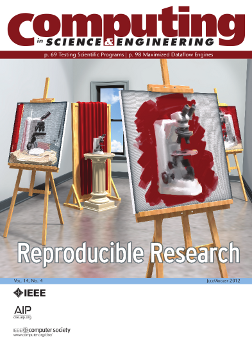 FFTW (the Fastest Fourier Transform in the West) is a famous library implementing an FFT algorithm. It was developed at MIT by Matteo Frigo and Steven G. Johnson and is distributed under a GPL license.
FFTW (the Fastest Fourier Transform in the West) is a famous library implementing an FFT algorithm. It was developed at MIT by Matteo Frigo and Steven G. Johnson and is distributed under a GPL license.
By popular demand, Madagascar’s FFT-based programs (such as sffft1 and sffft3) include now an optional support for FFTW. The presence of the FFTW single-precision library is detected during compilation. The following table shows some peformance measurements (CPU time in seconds for 1,000 complex-valued FFTs using sffft3):
| data length | KISS FFT | FFTW |
|---|---|---|
| 4,096 | 0.11 | 0.08 |
| 8,192 | 0.27 | 0.18 |
| 16,384 | 0.50 | 0.32 |
| 32,768 | 1.21 | 0.80 |
| 65,536 | 2.61 | 1.78 |





